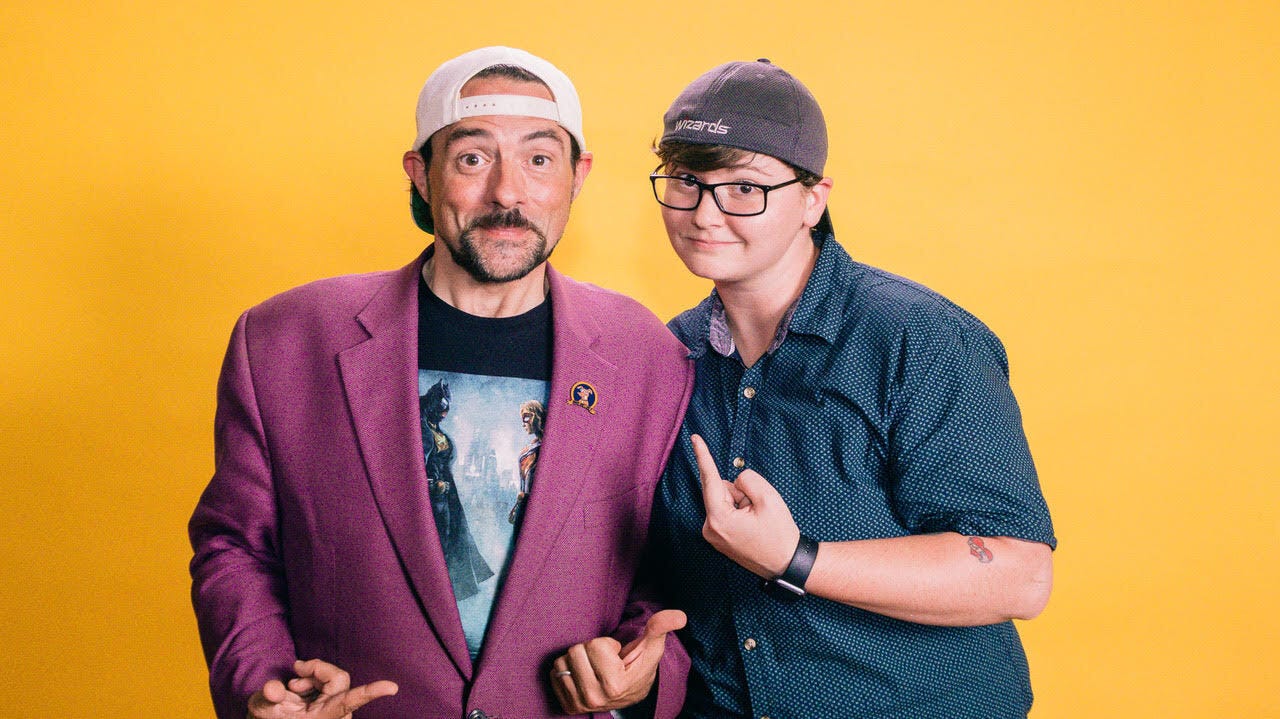'Chasing Chasing Amy' tracks down a movie's complicated legacy
Documentary filmmaker Sav Rodgers revisits the movie that saved his life.
Praise for Kevin Smith’s 1997 film “Chasing Amy” is often accompanied by phrases like “for its time.” For its time, Smith’s romantic dramedy was a funny and bracingly honest look at sexual politics, giving LGBT characters representation and agency they rarely had in movies before.
On the other hand, that look was made squarely through the straight white male gaze of Smith and his avatar character Holden (Ben Affleck). As “Chasing Amy” won awards and became a crossover hit, filmmakers who were actually queer could be understandably miffed at having their own stories overlooked. “It’s not rocket science,” says Guinevere Turner, screenwriter of the 1994 lesbian romance “Go Fish.” “A straight man tells a lesbian story, and now everybody’s paying attention.”
One person who did pay attention, years later, was a Kansas teenager named Sav Rodgers. Rodgers didn’t understand the feelings he was having, and certainly couldn’t share them with family or friends. The only time he felt understood was when he popped in a copy of “Chasing Amy” into the VHS player. Which he did some 200 times, he claims, the movie serving as a portal into a different, more accepting world he yearned to join.
Rodgers’ documentary “Chasing Chasing Amy” is a fan’s story that grapples affectionately with the complicated legacy of Smith’s film. The look back is satisfyingly intertwined with Rodgers’ personal journey (he transitions into becoming male over the course of making the film), and his sweet romance that’s utterly devoid of the hangups and difficulties of the “Chasing Amy” relationship.
Rodgers makes contact early on with Smith, and at first comes across as a nervous fanboy meeting his idol. But as their conversations go on, Rodgers seems to find his footing as an interviewer, and Smith is generous with his time and characteristically candid about his film’s complicated legacy.
There’s some backstory about the making of the film – Smith based the relationship between Holden and Alyssa (Joey Lauren Adams) on the “romantic friendship” he observed between Turner and his friend Scott Mosier – but “Chasing Chasing Amy” is more successful as a cultural essay than a making-of documentary. Interviews with cast and crew, as well as with critics, are thought-provoking and nuanced. And clips from films like “Party Girl” and “Go Fish” made me want to do a rewatch of gloriously grainy ‘90s indie cinema.
The emotional centerpiece of the film, though, is Rodgers' interview with Adams. The movie the actress will be forever identified with carries a lot of painful baggage for Adams – not only is much of the screenplay inspired by the dissolution of her relationship with Smith, but its success launched her into an indie film world where she was often objectified and demeaned.
It’s hard to believe that an early cut of “Chasing Chasing Amy” didn’t feature Rodgers’ personal story, since that is really the beating heart of the film. If Smith’s film really does have a lasting legacy, it’s not critical praise or the Criterion Collection DVD. It’s people like Rodgers, who was able to look past the well-meaning shortcomings of Smith’s filmmaking and see himself on screen for the first time.
“Chasing Chasing Amy” is now in theaters. In Madison, it’s playing at AMC Fitchburg 18.

